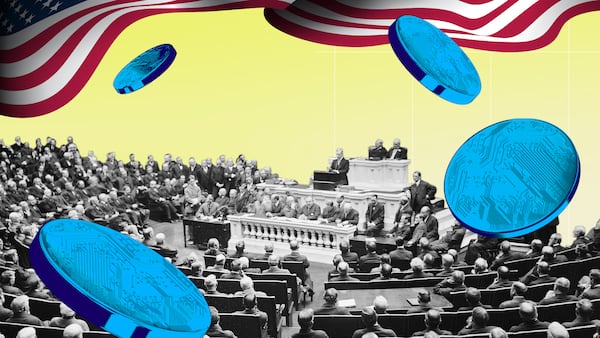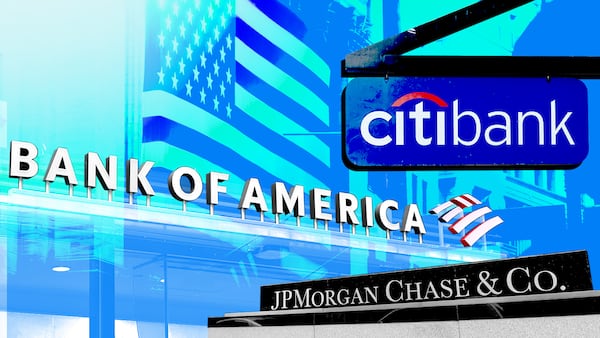- George Osborne says the UK missed its crypto moment by moving too slowly.
- He warns Britain may repeat the mistake with stablecoin regulation.
- Coinbase's viral UK ad has added public pressure for reform.
Eleven years after becoming the first UK finance minister to use a Bitcoin ATM on camera, George Osborne says Britain has fallen so far behind on crypto that it may never catch up.
In a sharply worded Financial Times op-ed published Monday, the former chancellor of the exchequer warned that the UK had already squandered its early lead and is now “about to miss the second wave” with stablecoins.
He cited years of indecision, restrictive policies, and a lack of competitive frameworks as key reasons why the UK is being “completely left behind.”
“A giant window of opportunity for Britain existed while US authorities remained crypto sceptics,” Osborne wrote. “That window has now closed.”
His call to action comes as momentum is building up in Blighty to get new crypto laws through parliament, and at a time that institutional adoption of blockchain moolah is at an all-time high. Osborne serves on Coinbase’s global advisory council.
Stablecoin rush
The UK has form when it comes to fintech.
The last decade saw the island nation birth the likes of Revolut, Checkout.com, and Wise.
Yet when it comes to crypto, Britain has fallen behind, Osborne and others argue.
One of Osborne’s successors and later prime minister, Rishi Sunak, even promised to transform the UK into a crypto hotbed before his defenestration from No. 10 last summer.
Countries like the US, Singapore, and the EU are moving aggressively to regulate stablecoins and tokenised finance, while the UK is stuck “deliberating,” Osborne said.
He criticised the Bank of England’s reluctance to allow commercial banks to issue sterling-backed stablecoins and warned that current proposals risk making them commercially unviable.
“For sterling stablecoins, you’ll pay a fee,” he said. “For dollar stablecoins, there are minimal transaction costs, and you may earn a return. No prizes for guessing which will dominate.”
As of 2025, more than 98% of fiat-backed stablecoins are tied to the US dollar, according to multiple industry reports.
Dollar-linked tokens like Tether and USD Coin dominate usage and market cap metrics, leaving little room for sterling-based alternatives to gain traction.
Without a competitive framework, Osborne warned, the pound risks being entirely sidelined.
Too little progress?
In its defence, the UK has taken some recent steps to re-engage the crypto sector.
The Financial Conduct Authority recently lifted its five-year ban on crypto-linked exchange-traded notes for retail investors, a decision that will take effect in October.
The Treasury has also published draft legislation for digital assets, and Parliament has relaunched its cross-party crypto group to scrutinise the upcoming rules.
“We’re providing consumers with more choice, while ensuring there are protections in place,” said FCA executive David Geale.
But many in the industry say progress is too slow and too limited.
Just six firms have been licensed with the FCA so far in 2025, according to the regulator’s crypto asset register.
While some may argue the low number reflects thorough vetting, it reinforces Osborne’s concern that the UK is losing ground.
The FCA hasn’t released updated rejection figures for 2025, but in its September 2024 report, it disclosed that 87% of applications had been rejected, refused, or withdrawn over the prior 12 months, primarily due to anti-money laundering concerns.
That rejection rate was more than double the average for traditional financial firms.
Coinbase debuts viral UK ad
Osborne’s warning comes alongside a more public-facing critique from Coinbase.
The American crypto exchange recently released a provocative UK advert titled “Everything is Fine,” satirising Britain’s economic woes and regulatory red tape around the crypto industry.
The two-minute musical, which was banned shortly after its debut, according to CEO Brian Armstrong, drew praise from fintech investors and backlash from viewers who called it arrogant and misleading.
Armstrong said the ad was not politically targeted but was meant to spark a broader conversation about financial systems failing ordinary people.
“When the financial system isn’t working for so many people in the UK, it needs to be updated,” the company wrote alongside the advert on X.
Kyle Baird is DL News’ Weekend Editor. Got a tip? Email at kbaird@dlnews.com.









